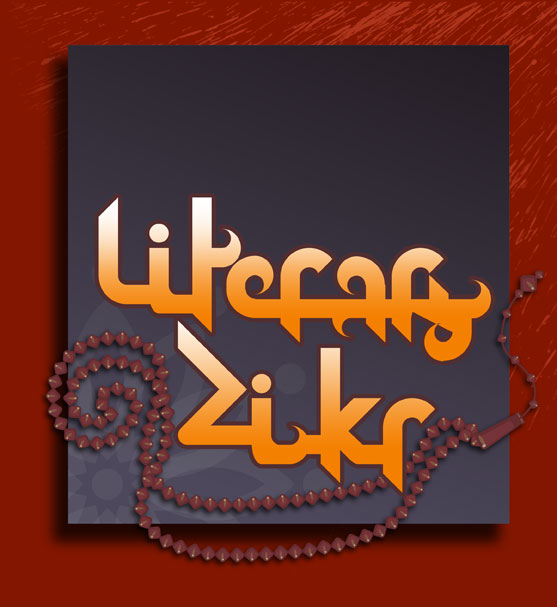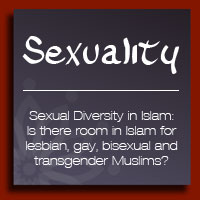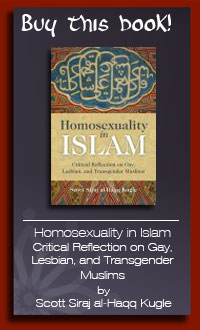





DIFFERENT WAYS OF READING TEXTS
Semantically
Reading something semantically involves looking at individual words, but considering more than just their literal definitions. Semantics includes the culturally understood meanings of words.
Thematically
Reading something thematically involves looking at the themes in a piece of writing, rather than just the individual words. Themes can include ideas, such as "prayer," or places, such as "the city of Mecca" or "places of worship." Themes can also refer to types of narratives, like "stories of battles." Whether they are ideas, images, places or types of narrative, themes are structures within a piece of writing that have deeper meaning than the meanings of the individual words used.
An example where Muslims read the Qur'an thematically:
The Qur'an tells the story of Moses' conflict with the Pharaoh of Egypt. The Hebrews were slaves in Egypt at the time of Moses' birth. In the story, Moses demanded that Pharaoh free his people. The verses tell the story in a very simple way as a story of a combat: there was a good side and a bad side, oppressed slaves against a powerful ruler and his followers. If people were to read only these verses and take them literally, they might conclude that Egyptians are evil and they might learn to hate all Egyptians. Yet the Qur'an praises the Pharaoh's wife for helping Moses and for being righteous. It also praises other Egyptians who disagreed with the Pharaoh. A thematic reading lets the reader put this story together with other stories in the Qur'an that are about oppressive rulers to see that the lesson of this story is not "Egyptians are bad" but rather "oppression is bad." A simple reading of the story of Moses might also lead to the conclusion "all rulers oppress people." This could lead people to resist all authority. Yet a thematic reading helps the reader to see that it is not the ruler's power that causes oppression, because rulers can use their power in just, fair ways. Instead, the reader can see that oppression comes from the misuse of power.
--------------------------------------------------------------------------------
OTHER TERMS
CE
CE stands for Common Era. It is used with the Gregorian (Christian) calendar. CE is a secular term used instead of AD, which stands for Anno Domini and means "The Year of Our Lord", a Christian-based reference to the birth of Jesus(PBUH).
Coerce
To coerce (ko-URS) means to make someone do something by putting so much pressure on them that they have little choice. For example, threatening someone is a way to coerce him or her.
Colonization
European powers—especially Britain, France, and the Netherlands—had control of nearly all countries where Muslims are the majority of the population today. The exceptions were Iran, Turkey and Saudi Arabia. In these three countries, there was strong colonial influence, but there was no military conquest or occupation. The period of European colonialism started as early in the 1700s in some places, such as Indonesia (colonized by the Netherlands) and India (colonized by Britain). However, colonialism had the greatest effect during the 1800s and early 1900s.
Homophobia
Homophobia refers to a "fear" of homosexuality or prejudice against homosexuals.
Monarch
A monarch is a ruler whose right to rule is hereditary—in other words, it is inherited within a family. A ruling monarch may be called a king, queen, prince, caliph, emir or another title. Traditionally, monarchies had few limits on their power. Today, some monarchies are very powerful while others are limited, sharing power with elected representatives. Countries with monarchies today include the United Kingdom of Great Britain, the Kingdom of Morocco and the Kingdom of Saudi Arabia.
Patriarchy/Patriarchal
Patriarchy is a common system of organizing society that puts the majority of power in the hands of men, makes women and children dependent on men and establishes inheritance laws that follow the male line.
Patriarchal is an adjective that is used to describe any society that is organized as a patriarchy. Patriarchal also can describe ideas, beliefs or other systems that privilege (give advantage) or give power to men.
Permissive
Permissive is an adjective that means a person or group is not very strict about rules or has rules that allow people to follow their desires. It is usually used in a negative way and implies that the speaker does not approve of the other person or group's treatment of rules.
Prejudice
Prejudice usually refers to a negative belief a person or people holds about another person or group, based on a judgement made unfairly or without enough information. For example, a negative belief about an entire group of people is a prejudice because it involves a judgement made about all the people in the group without knowing enough about each one to make that judgement.
Sexism
Sexism is a form of prejudice and discrimination based on a person's sex or gender.
Slavery
Slavery is mentioned in the Qur'an but the Qur'an does not promote slavery. In fact, it demands humane treatment of slaves and emphasizes freeing slaves. However, it does give some rules relating to slaves because slavery was a real part of society at the time the Qur'an was written. The slavery that existed in the Prophet Muhammad's day was very different from the more recent slavery of Africans by European nations and the United States. Slaves in the time of the Prophet Muhammad were prisoners of war, who had the right to earn their freedom and might be freed if the political situation changed. They had rights and were treated as human beings—however, they were human beings at the bottom of the social "ladder."
-------------------------------------------------------------------------------
Semantically
Reading something semantically involves looking at individual words, but considering more than just their literal definitions. Semantics includes the culturally understood meanings of words.
Thematically
Reading something thematically involves looking at the themes in a piece of writing, rather than just the individual words. Themes can include ideas, such as "prayer," or places, such as "the city of Mecca" or "places of worship." Themes can also refer to types of narratives, like "stories of battles." Whether they are ideas, images, places or types of narrative, themes are structures within a piece of writing that have deeper meaning than the meanings of the individual words used.
An example where Muslims read the Qur'an thematically:
The Qur'an tells the story of Moses' conflict with the Pharaoh of Egypt. The Hebrews were slaves in Egypt at the time of Moses' birth. In the story, Moses demanded that Pharaoh free his people. The verses tell the story in a very simple way as a story of a combat: there was a good side and a bad side, oppressed slaves against a powerful ruler and his followers. If people were to read only these verses and take them literally, they might conclude that Egyptians are evil and they might learn to hate all Egyptians. Yet the Qur'an praises the Pharaoh's wife for helping Moses and for being righteous. It also praises other Egyptians who disagreed with the Pharaoh. A thematic reading lets the reader put this story together with other stories in the Qur'an that are about oppressive rulers to see that the lesson of this story is not "Egyptians are bad" but rather "oppression is bad." A simple reading of the story of Moses might also lead to the conclusion "all rulers oppress people." This could lead people to resist all authority. Yet a thematic reading helps the reader to see that it is not the ruler's power that causes oppression, because rulers can use their power in just, fair ways. Instead, the reader can see that oppression comes from the misuse of power.
--------------------------------------------------------------------------------
OTHER TERMS
CE
CE stands for Common Era. It is used with the Gregorian (Christian) calendar. CE is a secular term used instead of AD, which stands for Anno Domini and means "The Year of Our Lord", a Christian-based reference to the birth of Jesus(PBUH).
Coerce
To coerce (ko-URS) means to make someone do something by putting so much pressure on them that they have little choice. For example, threatening someone is a way to coerce him or her.
Colonization
European powers—especially Britain, France, and the Netherlands—had control of nearly all countries where Muslims are the majority of the population today. The exceptions were Iran, Turkey and Saudi Arabia. In these three countries, there was strong colonial influence, but there was no military conquest or occupation. The period of European colonialism started as early in the 1700s in some places, such as Indonesia (colonized by the Netherlands) and India (colonized by Britain). However, colonialism had the greatest effect during the 1800s and early 1900s.
Homophobia
Homophobia refers to a "fear" of homosexuality or prejudice against homosexuals.
Monarch
A monarch is a ruler whose right to rule is hereditary—in other words, it is inherited within a family. A ruling monarch may be called a king, queen, prince, caliph, emir or another title. Traditionally, monarchies had few limits on their power. Today, some monarchies are very powerful while others are limited, sharing power with elected representatives. Countries with monarchies today include the United Kingdom of Great Britain, the Kingdom of Morocco and the Kingdom of Saudi Arabia.
Patriarchy/Patriarchal
Patriarchy is a common system of organizing society that puts the majority of power in the hands of men, makes women and children dependent on men and establishes inheritance laws that follow the male line.
Patriarchal is an adjective that is used to describe any society that is organized as a patriarchy. Patriarchal also can describe ideas, beliefs or other systems that privilege (give advantage) or give power to men.
Permissive
Permissive is an adjective that means a person or group is not very strict about rules or has rules that allow people to follow their desires. It is usually used in a negative way and implies that the speaker does not approve of the other person or group's treatment of rules.
Prejudice
Prejudice usually refers to a negative belief a person or people holds about another person or group, based on a judgement made unfairly or without enough information. For example, a negative belief about an entire group of people is a prejudice because it involves a judgement made about all the people in the group without knowing enough about each one to make that judgement.
Sexism
Sexism is a form of prejudice and discrimination based on a person's sex or gender.
Slavery
Slavery is mentioned in the Qur'an but the Qur'an does not promote slavery. In fact, it demands humane treatment of slaves and emphasizes freeing slaves. However, it does give some rules relating to slaves because slavery was a real part of society at the time the Qur'an was written. The slavery that existed in the Prophet Muhammad's day was very different from the more recent slavery of Africans by European nations and the United States. Slaves in the time of the Prophet Muhammad were prisoners of war, who had the right to earn their freedom and might be freed if the political situation changed. They had rights and were treated as human beings—however, they were human beings at the bottom of the social "ladder."
-------------------------------------------------------------------------------
ABOUT THE AUTHOR
Dr. Scott Siraj Al-Haqq Kugle
Dr. Scott Siraj Al-Haqq Kugle is a professor at Emory University. He teaches about Islamic culture, theology and ethics. On the topic of gender and sexuality, Dr. Kugle has written:
•Homosexuality in Islam: Critical Reflection on Gay, Lesbian, and Transgender Muslims" (Oxford: Oneworld Publications, 2010).
•"AIDS, Homosexuality and Muslims" co-authored with Sarah Chiddy, in Farid Esack (ed.), When Sin Becomes Widespread—AIDS, Ethics and Justice in Islam (Oxford: Oneworld, 2008).
•"Sexual Diversity in Islam" in Vincent Cornell, Gray Henry and Omid Safi (eds.), Voices of Islam, volume 5 (New York: Praeger Press, 2007).
•"Sultan Mahmud's Make-Over: Colonial Homophobia and Persian-Urdu Poetics" in Ruth Vanita (ed), Queering India: same-sex love and eroticism in Indian culture and society (New York: Routledge, 2001).
For more information, visit Dr. Kugle's website: www.mesas.emory.edu/home/people/faculty/kugle.
Page: 1 | 2 | 3 | Notes 1 | Notes 2 | Notes 3
--------------------------------------------------------------------------------
Dr. Scott Siraj Al-Haqq Kugle
Dr. Scott Siraj Al-Haqq Kugle is a professor at Emory University. He teaches about Islamic culture, theology and ethics. On the topic of gender and sexuality, Dr. Kugle has written:
•Homosexuality in Islam: Critical Reflection on Gay, Lesbian, and Transgender Muslims" (Oxford: Oneworld Publications, 2010).
•"AIDS, Homosexuality and Muslims" co-authored with Sarah Chiddy, in Farid Esack (ed.), When Sin Becomes Widespread—AIDS, Ethics and Justice in Islam (Oxford: Oneworld, 2008).
•"Sexual Diversity in Islam" in Vincent Cornell, Gray Henry and Omid Safi (eds.), Voices of Islam, volume 5 (New York: Praeger Press, 2007).
•"Sultan Mahmud's Make-Over: Colonial Homophobia and Persian-Urdu Poetics" in Ruth Vanita (ed), Queering India: same-sex love and eroticism in Indian culture and society (New York: Routledge, 2001).
For more information, visit Dr. Kugle's website: www.mesas.emory.edu/home/people/faculty/kugle.
Page: 1 | 2 | 3 | Notes 1 | Notes 2 | Notes 3
--------------------------------------------------------------------------------
MPV thanks the generous contribution of the Human Rights Campaign for making this adaptation possible.

